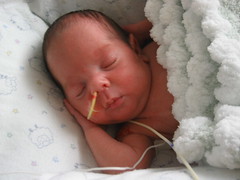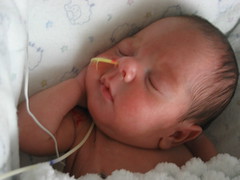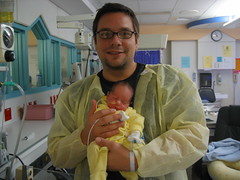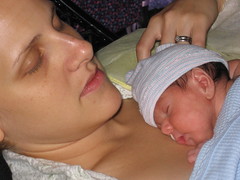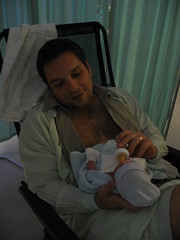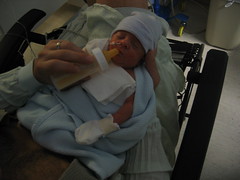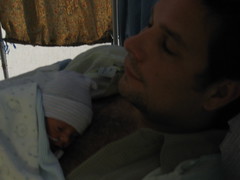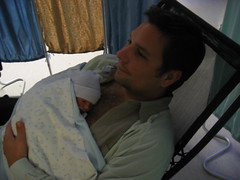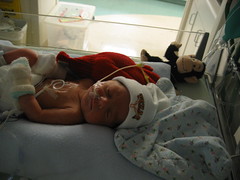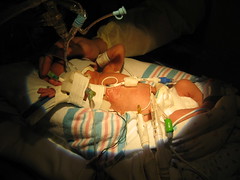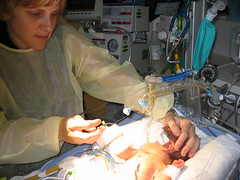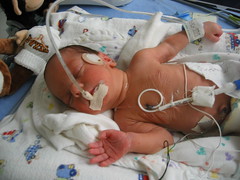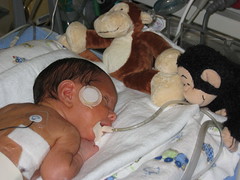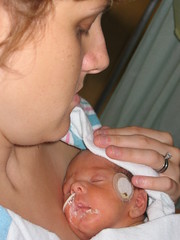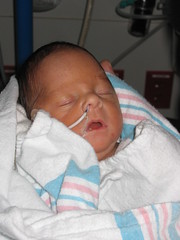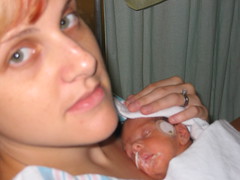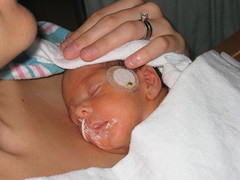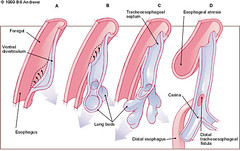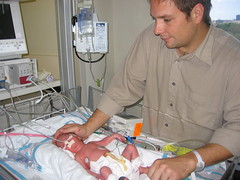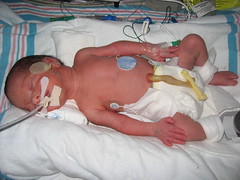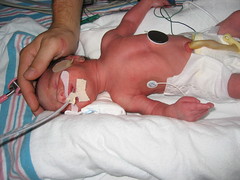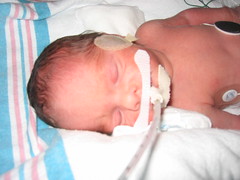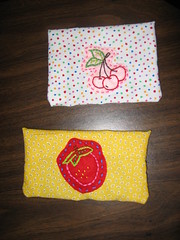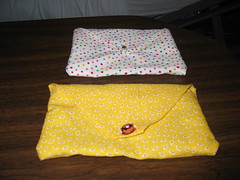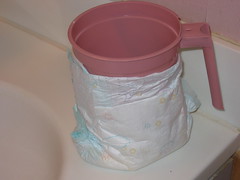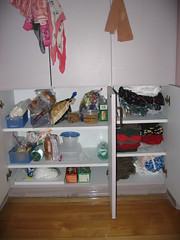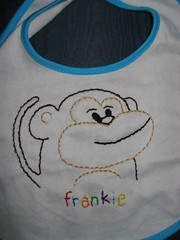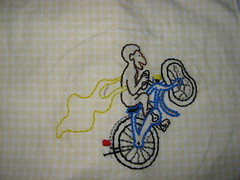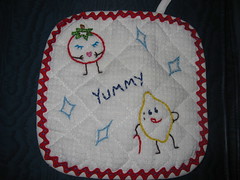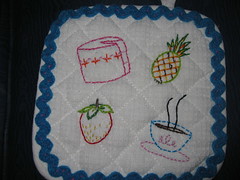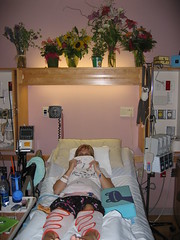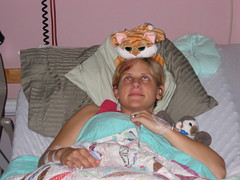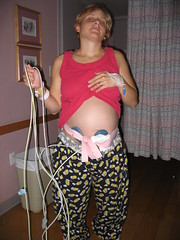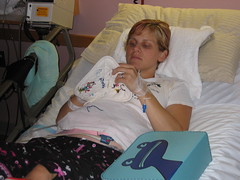The Nippling Protocol
Our days have almost become routine. We're usually up at the hospital by 8am, or shortly thereafter. We leave from 10 to noon, while the doctors make their rounds, then return and stay until 5, when they kick us out for afternoon rounds. While we're in the NICU, we change dirty diapers, take Frankie's temperature, swaddle him in blankets and hold him in our arms, or naked against our skin. Over the past couple of days, we've even been able to offer him a bottle with a tiny bit of milk (5ml, twice a day). Yesterday, he started something called the "nippling protocol" (which, by the way, would make an outstanding title if Dean Koontz decides to try his hand at pornography). Since he arrived in the NICU, Frankie has received the bulk of his nutrition intravenously through the broviac catheter sutured into his chest. Since the insertion of the NJ tube a little over a week ago, the IV feedings have been supplemented with gavage feedings, which basically means breastmilk is being forced through the tube. While the nasal tube was in his intestine (NJ), he recieved a continuous feed (starting at .5ml/hour, every hour); when they pulled the tube back 19cm into his stomach, he began bolus feeds, which are relatively quick bursts spread out over time. The nippling protocol is intended to acclimate him to the bottle. The pictures I posted of Frankie taking a bottle don't really count as "feeding". Those 5ml teasers were just a way to introduce him to the concept. Now, he receives 30ml of milk in a bottle every three hours. What he doesn't finish is given by gavage. The nurses allow him about half an hour to work on the bottle, but after that he's burning more calories than he's taking in. On Friday, Frankie took 10ml's from the bottle. By Saturday, he was up to 15ml. Once again, the little guy is doing better than we could've hoped.
Frankie's progress has even impressed his doctors. Dr. Josephs, the pediatric surgeon who performed Frankie's surgery, seems more than satisfied with his work. His face lights up every time he stops by to check on Frankie. The neonatologists who've taken over Frankie's day-to-day care continually revise their orders, moving him through each of these phases of treatment much more rapidly than they'd anticipated. On Anna's first visit to the NICU, one of the NICU attending physicians, a humorless man we call Dr. Blunt, told her, "you should hope for the best...but expect the worst." On Friday, he stopped by Frankie's bed and told us, "Frankie's doing exceptionally well," then he paused, obviously realizing that this kind of optimism is totally out of character, and added, "but that doesn't mean he's going home any time soon."
Anna didn't miss a beat. "Oh, we know. We'll give you guys a couple more days with him."
Dr. Blunt, who has the bedside manner of a mortician, was flustered. "Oh, I'm afraid it will be more than a couple of days." Anna and I looked at each other, choked back a laugh, and told him that we were joking. We said his due date wasn't until September 9th, and we knew we'd be lucky to have him home by then. Dr. Blunt mulled over this information, his eyes drifting up to the ceiling, signalling deep thought, then told us, "Well, September may be more likely." Then he walked away, without a smile or any other indication that he appreciated our humor. Then we laughed.


